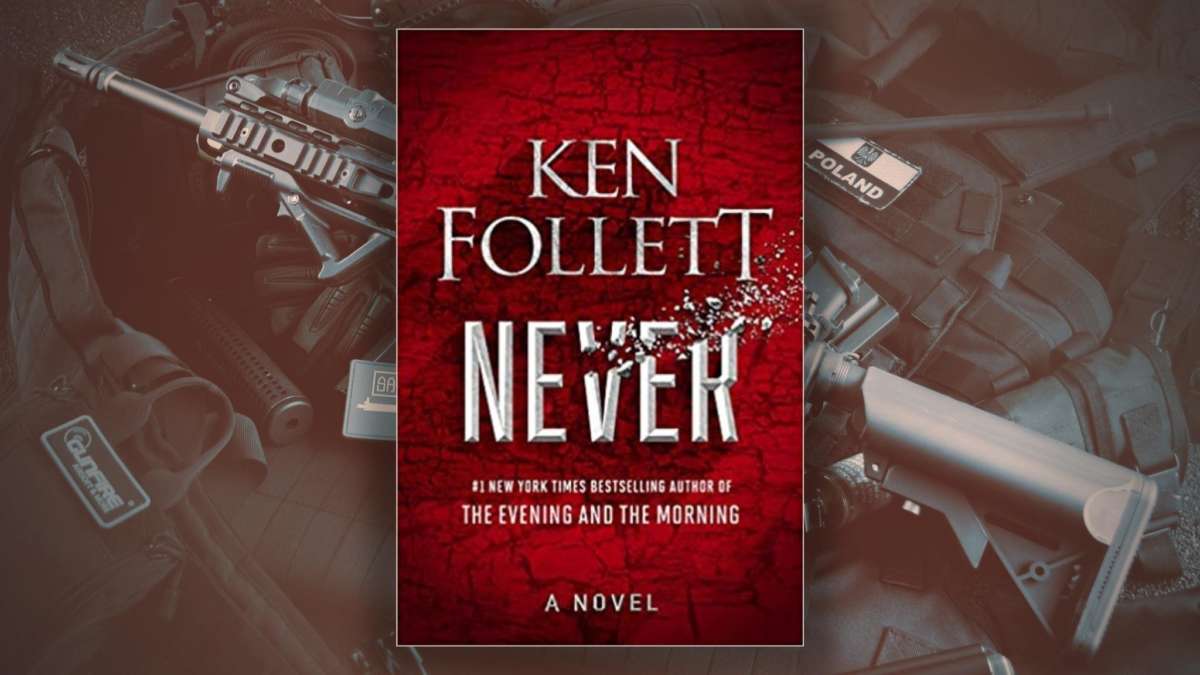When I finished Ken Follett’s Never, I leaned back in my chair in silence and listened to my breathing for a few seconds. I needed to process and sort emotions after finishing a great story that had climaxed into one of the most powerful, abrupt and dramatic endings I’d ever read.
My next thought was that the publisher, Penguin Random House, should send a copy to every influential political leader around the world as a public service and maybe add a few chest-pounding cable news commentators for good measure.
And you should read it, too, because this is Dr. Strangelove cubed, only it’s more believable than Stanley Kubrick’s satiric and iconic novel-turned-movie about how a 1960s-style nuclear war might start. Follett has updated the nuclear-disaster narrative for these crazier, more complex times. Never should scare the you-know-what out of you.
IMPORTANT AND POWERFUL
Here’s what Follett writes in a brief introduction about his inspiration:
“When I was doing research for The Fall of Giants I was shocked to realize that the First World War was a war that nobody wanted. No European leader on either side intended it to happen. But the emperors and prime ministers, one by one, made decisions — logical, moderate decisions — each of which took us a small step closer to the most terrible conflict the world had ever known. I came to believe that it was all a tragic accident.
And I wondered: could that happen again?”
There’s a danger in this. Novelists with agendas can lapse into pontificating instead of storytelling. (See: “Ayn Rand.”) One thing Never never becomes is preachy. The power of the message unfolds organically within a compelling story that moves from the Sahara desert to North Korea to the situation rooms of the U.S. and Chinese governments. Think Tom Clancy’s Sum of All Fears marrying the epic sweep that Follett brings to his work.
Pauline Green is the U.S. president. “Every catastrophe begins with a little problem that doesn’t get fixed,” she says in a quote that sums up what’s to come. In Never, the first threads unravel in the African nation of Chad, followed by desert terrorism, fights between hard-liners and reformers in the Chinese government and starvation in North Korea. A stolen U.S. drone is used to destroy a fragile peace between Chad and Sudan. Most U.S. citizens couldn’t find Chad on a map and couldn’t care less, but suddenly they have to pay attention when that drone ties the U.S. to the deaths of Chinese citizens in North Africa.
The story unfolds through memorable characters such as Abdul, a CIA operative who risks his life to fight African terrorism while posing as a refugee with human traffickers. He finds his choices complicated by his affection for Kiah, a refugee on the same dangerous journey with her child. Then there’s Tamara, a lower-level agent in the U.S. embassy who fights mansplaining superiors and short-sighted policies in heroic efforts to keep the danger bottled.
POLITICS AND PRIORITIES
Follett turns to Chinese politics and priorities through the eyes of Chang Kai, head of a secret Chinese agency who is married to a popular actress and keeps pushing for moderation to avoid a holocaust. Chang has a back-channel line to an American counterpart. They desperately try to keep diplomacy’s doors open. Meanwhile, Pauline Green has to fight for her marriage and political life as a populist who believes that solving problems with bombs opposes her re-election.
The common theme in these measured reactions and responses that almost invisibly narrow future options is “saving face.” For recent examples, you could look at the invasion of Iraq or the war in Vietnam, brilliantly described in David Halberstam’s The Best and Brightest. Nations can’t be embarrassed. They can’t look weak. It’s World War I again, only this time across the globe with nukes looming.
If you’ve read this far, you probably know that Follett is one of our great thriller authors. He’s authored more than 30 books with 170 million sales ranging from the classic spy thriller Eye of the Needle to the cathedral-building medieval epic Pillars of the Earth. Now, at age 72, he has given us a book that could be his most important.
May the people with the power read it, sooner rather than later.



